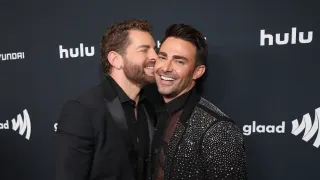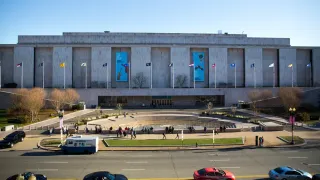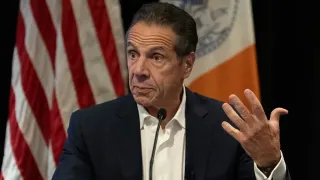
2 hours ago
Minnesota Teen Files Discrimination Charge After Buffalo Wild Wings Server Demands Proof of Gender in Restroom Incident
READ TIME: 3 MIN.
On April 2025, Gerika Mudra, an 18-year-old high school student who identifies as a biracial (Black and white) lesbian, visited the Buffalo Wild Wings restaurant in Owatonna, Minnesota, with a friend. From the outset of their visit, Mudra and her friend sensed hostility from restaurant staff, with their assigned server described as "rude" and "giving us dirty looks" throughout their meal . According to Mudra, the server largely ignored the pair until she left their table to use the women's restroom.
Mudra reports that the server followed her into the restroom, banged on her stall door, and loudly accused her of being a man in the women’s restroom. Despite Mudra’s protests—“I am a lady”—the server insisted she leave immediately. The confrontation escalated when the employee blocked her from exiting and demanded she prove her gender by unzipping her hoodie and displaying her breasts. Only after Mudra complied did the server allow her to leave .
Following the incident, Mudra, with support from the legal advocacy group Gender Justice, filed a formal discrimination charge with the Minnesota Department of Human Rights. Sara Jane Baldwin, senior staff attorney at Gender Justice, stated, “Minnesota law protects people from exactly this kind of discrimination in public spaces. No one should be harassed, humiliated, or forced to prove themselves just to use the bathroom” .
The charge highlights that Mudra was targeted based on her gender expression, which did not conform to the server’s expectations of femininity. While Mudra herself is not transgender, her experience reflects the broader climate of suspicion and hostility faced by transgender and gender nonconforming people in public spaces, particularly regarding access to restrooms .
This incident has resonated deeply within Minnesota’s LGBTQ+ community and beyond, sparking outrage and calls for better education and training around issues of gender identity and expression. Advocates note that while Mudra is a cisgender lesbian, her experience is emblematic of the harassment and violence that transgender people—especially transgender women and masculine-presenting queer women—often face in public accommodations .
Gender Justice and other advocacy organizations are using Mudra’s case to highlight the importance of robust anti-discrimination laws and the need for restaurant and retail chains to invest in comprehensive staff training. They emphasize that all people, regardless of how they look or identify, deserve to feel safe and respected when accessing public facilities .
The case is unfolding against a backdrop of ongoing national debates about restroom access, gender identity, and discrimination in public spaces. In recent years, numerous states have introduced or passed legislation restricting restroom usage for transgender individuals, often under the guise of “protecting women’s safety.” LGBTQ+ advocacy groups argue that such laws and attitudes not only put transgender people at risk but also contribute to a culture in which anyone who does not conform to narrow gender stereotypes may be targeted for harassment or violence .
Mudra’s experience underscores the urgent need for widespread cultural change. As Sara Jane Baldwin of Gender Justice affirmed, “No one should be harassed, humiliated, or forced to prove themselves just to use the bathroom.” The case is expected to proceed through the Minnesota Department of Human Rights, and advocacy groups have pledged to continue supporting Mudra and other individuals who face similar discrimination .
Buffalo Wild Wings has not yet issued a public statement addressing this specific incident. Community members, LGBTQ+ allies, and advocacy organizations are calling for accountability and systemic reforms to ensure that all patrons—regardless of gender identity, sexual orientation, or appearance—are treated with dignity and respect in public establishments .
Mudra’s story serves as both a call to action and a reminder of the importance of creating inclusive environments for all. As legal proceedings and public conversations continue, advocates hope this case will drive meaningful change and foster greater understanding of the challenges faced by LGBTQ+ individuals in everyday life.






